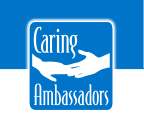Questions for the Health Care Team
Caregiver Choices©
Who is a Caregiver?
Understanding Your Feelings
Getting Help
Taking Care of Your Loved One
Planning Ahead
Understanding Lung Cancer
Treatment for Lung Cancer
Lung Cancer Health Care Team
Questions for the Health Care Team
Prognosis
Key Decision Points in Care
Conclusion
Caregiver Resources
Afterword
About the Authors
About the Editors
Acknowledgments
Caregiver Choices© Menu
At various points throughout the process, the person with cancer will have many questions for his or her health care team. Almost all health care professionals are competent and caring and have their patients’ best interest at heart, but they cannot anticipate the needs of every single one of their patients throughout their busy days. As a caregiver, you can help the person with cancer prepare for visits with members of their health care team by developing a list of questions beforehand, rather than hoping that the right questions will come to mind once he or she is in the room with the provider. There are many different questions that may become important at different times—help the person with cancer write down a list to bring along to each appointment. These do not need to be complicated or fancy questions.
Here are some sample questions to help you and the person with cancer get started:
-
-
- Where is my tumor located? Can you show me on the image?
- What stage is my cancer?
- Can my cancer be cured?
- What is the treatment plan?
- What is the schedule of the therapy?
- How long are the various treatments?
- What are the potential side effects?
- How will these side effects be managed?
- Can you provide paperwork for the caregiver’s workplace so that the caregiver can come to the appointments?
- Are the treatments covered by insurance and who can help me check?
- What integrative, alternative, or complementary therapies are worth exploring?
- Who is the primary contact at the clinic if my family needs to talk to someone?
- Is this illness related to my military service?
- Who is the after-hours contact?
- Should we look into consulting a specialist in lung cancer?
- Should we go to a university oncologist or an oncologist in our community?
- What expectations are there for the caregiver?
-
It can be hard to remember all of the questions that you may have for your health care team. Caring Ambassadors offers Lung Cancer Question Builder. It is a tool designed to take you through a series of questions you may want to ask your health care team as you navigate the journey ahead. You can print out your questions and take it with you, or email it to your provider ahead of time. Being prepared will help you better communicate with your health care team.
